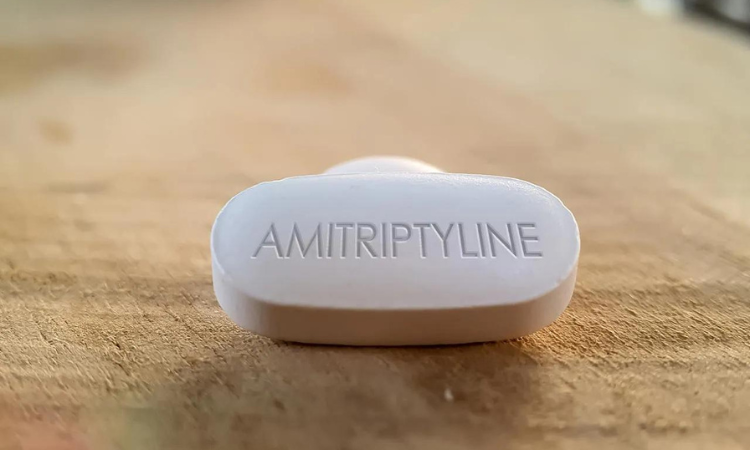Obsessive-Compulsive Disorder (OCD) is a mental health condition that affects people of all ages, but when it comes to teenagers, the challenges can be particularly complex.
For many teenagers, the transition from childhood to adulthood is a whirlwind of physical, emotional, and social changes. Amidst this transformative phase, some adolescents grapple with an additional challenge – Obsessive-Compulsive Disorder (OCD). This mental health condition often emerges during puberty, intertwining with the already complex phase of teenage life.
This guide aims to shed light on OCD symptoms in teenage girls and explore the question: does OCD get worse with age?
Identifying OCD in Teenage Girls: The Reality of OCD Progression in Adolescence
The signs of OCD in teenage girls may be discreet but carry significant weight. From excessive worrying to the manifestation of ritualistic behaviors, these signs carry significant weight, impacting various aspects of a teenager’s life.
Understanding OCD Symptoms in Teenage Girls:
Teenage girls with OCD may exhibit a range of symptoms that significantly impact their daily lives. Key symptoms include:
⦁ Intrusive Thoughts: Often involve fears about contamination, harm to loved ones, or a need for symmetry. These thoughts can be persistent and cause considerable anxiety.
⦁ Compulsive Behaviours: May include actions like excessive hand washing, meticulous checking, counting, or repeating specific actions. These behaviors are performed in an attempt to alleviate the anxiety caused by intrusive thoughts.
⦁ Impact on Daily Life: OCD symptoms can affect academic performance, relationships with peers and family, and overall well-being. The disorder can lead to challenges in managing everyday activities and social interactions.
⦁ Heightened Perfectionism: Teenage girls with OCD exhibit intense perfectionism in schoolwork or personal projects
In this journey of understanding and support, knowledge becomes a powerful tool. Together, as a community, we can foster an environment that aids these teenagers in overcoming the intricacies of this mental health challenge.
Case Study: Sarah’s Journey with OCD
At 16, Sarah seemed like a typical high school student: she was academically successful and active in school clubs. However, beneath this facade, Sarah was battling Obsessive-Compulsive Disorder (OCD). Her days were overshadowed by intrusive thoughts about contamination, leading her to engage in time-consuming handwashing rituals.
Initially, Sarah tried to hide her struggles from her family and friends, but her academic performance began to suffer, and she became increasingly withdrawn. Concerned, her parents sought help from a mental health professional who diagnosed Sarah with OCD.
Sarah’s treatment journey began with Cognitive-Behavioral Therapy (CBT), focusing on Exposure and Response Prevention (ERP). She also started a course of Selective Serotonin Reuptake Inhibitors (SSRIs) to help manage her anxiety. Over time, with consistent therapy and support from her family, Sarah learned to manage her OCD symptoms effectively.
Her recovery wasn’t linear; there were setbacks and challenging days. However, Sarah’s determination, coupled with a strong support system, led to significant improvements. She became more engaged in her school activities and felt empowered to share her experiences with her peers, raising awareness about OCD.
Sarah’s story highlights the importance of early intervention and the effectiveness of a combined approach to OCD treatment. It also underscores the crucial role of family support in a teenager’s recovery journey.
Myth-Busting – Does OCD Get Worse with Age?
Have you ever wondered if OCD intensifies with Age? Let’s demystify this myth together.
Contrary to common belief, the progression of OCD symptoms can vary greatly among individuals. Research indicates that the trajectory of OCD can differ significantly from person to person. While some individuals may witness a heightening of symptoms during puberty, attributed to hormonal fluctuations and increased social pressures, it’s crucial to recognize that this isn’t a universal experience. For some, OCD symptoms may remain relatively stable or even improve over time.
Influential Factors in the Evolution of OCD
Several factors contribute to the manifestation and evolution of OCD over time:
- Delay in Seeking Treatment:
Teenagers may delay seeking help due to stigma or a lack of awareness about their condition. Early intervention is key in managing OCD effectively, and a delay in seeking treatment can contribute to the worsening of symptoms.
- Impact of Hormonal Changes:
Hormonal changes during adolescence can influence the severity of OCD symptoms. While some individuals may experience a decrease in symptoms as they age, others may find that hormonal changes exacerbate their condition.
- Coping Mechanisms:
Teens may develop more sophisticated coping mechanisms as they mature, but these can sometimes contribute to a worsening of symptoms. It’s essential for individuals with OCD to learn healthy coping strategies through therapy and support networks.
- Life Stressors:
Significant life events, such as changes in relationships or academic pressures, can trigger fluctuations in symptom severity.
Seeking Professional Support:
Regardless of the anticipated trajectory of OCD symptoms, seeking professional assistance is imperative for individuals grappling with the disorder. Early intervention and effective treatment significantly enhance the quality of life and mitigate the impact of OCD on daily functioning.
Treatment Approaches for OCD
In the contemporary world, there are various treatment options available for Obsessive-Compulsive Disorder (OCD). These approaches aim to help individuals manage and alleviate the symptoms associated with OCD, enabling them to lead more fulfilling lives. Here are some prominent treatment options:
- Cognitive-Behavioral Therapy (CBT): CBT targets distorted thinking patterns fueling obsessions and incorporates exposure and response prevention (ERP), gradually confronting fears without engaging in compulsions. For more on Cognitive-Behavioral Therapy (CBT), see our detailed article
- Selective Serotonin Reuptake Inhibitors (SSRIs): Medications, such as selective serotonin reuptake inhibitors (SSRIs), are commonly prescribed to help regulate brain chemistry and alleviate the symptoms of OCD. Antidepressant medications can be beneficial in reducing anxiety and minimizing intrusive thoughts.
- Family Support: Building a supportive environment at home is essential. Educate family members about OCD, and encourage open communication to reduce stigma and foster understanding.
- Educational Advocacy: Collaborate with schools to create an environment that supports the academic needs of teenagers with OCD. This may include implementing accommodations and educating teachers and peers about the condition.
- Innovative Technologies: Advancements in technology have introduced innovative approaches to OCD treatment. Virtual reality therapy and smartphone applications designed for mental health support offer new and engaging ways for individuals to practice therapeutic techniques and manage their symptoms.
Empowering Teens: Simple Coping Strategies for Everyday Life
Apart from professional help, teens dealing with OCD need practical tips for their daily lives.
Being a teenager comes with its share of challenges, and for those dealing with issues like Obsessive-Compulsive Disorder (OCD), it can feel like an additional layer of complexity. In this section, we’ll explore some straightforward yet powerful coping strategies to empower teens in managing the demands of everyday life.
- Stay Present with Mindful Moments: In the hustle of daily life, encourage teens to take mindful moments. Whether it’s appreciating a quiet sunset or savoring a favorite snack, being present helps ground them in the here and now, easing the weight of constant thoughts.
- Lean on Trusted Allies: Building a support system is key. Teens should identify trustworthy friends, family members, or mentors to confide in. Knowing they have someone to share their thoughts with can provide invaluable emotional support.
- Tackle Tasks One Step at a Time: Breaking down tasks into smaller steps makes them more manageable. Help teens create a step-by-step plan for tackling responsibilities, promoting a sense of achievement as they progress through each stage.
- Establish Consistent Routines: Stability can be a stabilizing force. Encourage teens to establish daily routines, including regular sleep patterns and study habits. Predictability fosters a sense of control in the midst of life’s uncertainties.
- Encourage Positive Self-Reflection: Teach teens the power of positive self-talk. Remind them to challenge negative thoughts and replace them with affirmations. Cultivating a positive inner dialogue contributes to a healthier mindset.
- Explore Relaxation Practices: Introduce teens to relaxation techniques that suit their preferences, whether it’s practicing deep-breathing exercises, trying meditation, or enjoying creative outlets like drawing or writing. These activities can be effective stress relievers.
- Balanced Screen Time: In the age of screens, it’s essential to balance digital engagement. Encourage teens to take breaks from devices, and engage in activities that promote physical activity or face-to-face interactions. A digital detox can contribute to mental well-being.
By incorporating these approaches into their routines, teens can enhance their resilience and embrace a more balanced and empowered way of living.
Conclusion: Empathy, Action, and Building a Supportive Community
As we conclude this guide, we want to emphasize the significance of empathy and understanding when it comes to supporting teens with OCD. This conclusion is a rallying call to engage in open conversations, seek professional help, and foster a caring environment. It’s time to take action and work together to dismantle the stigma surrounding mental health.
Are you prepared to be part of our collective effort to understand and support teens with OCD? Feel free to share your thoughts in the comments below, and let’s come together to establish a community committed to dismantling the barriers around mental health.
Commence your path to healing now. Uncover a wealth of additional resources and inspiring stories on our website.









